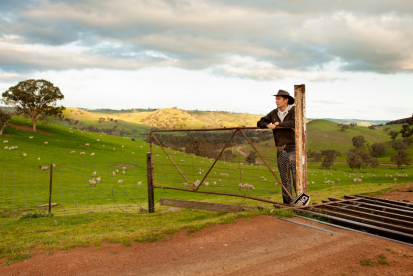As custodians of more than half of the Australian land, farmers fulfil some of our most basic needs, food and clothing, whilst facing high social and legal expectations, including the expectation to uphold the ‘duty of care.’ Unfortunately, despite being a crucial aspect of agribusiness management, the duty of care is a pretty vague and often misunderstood concept.
In our interview with Phil Brunner and Danielle Edwards of Bailiwick Legal, they share insights into the concept of duty of care, its importance in agribusiness, and ways to uphold it now and in the future.
What is duty of care in agribusiness?
According to the Australian government's Industry Commission 1998, a duty of care is a farmer’s or landowner’s legal obligation “to take all reasonable and practical steps to prevent any foreseeable harm from their actions” to another person or property.
Danielle further explained this by noting the 2017 example of a case of chemical spray drift in Victoria. A neighbouring farm was undertaking some spraying, and the spray drifted over to a vineyard and impaired the grape crop so much that the local winemaker decided not to purchase that year because the crops were damaged.
This is where the difference between negligence and unforeseeable incidents comes to light. The court ruled that the farmer sprayed the paddock during obviously unsuitable weather with the wind blowing at up to 100 kms/h and deliberately ignored the advice of his chemical expert regarding the chemical application rates. Both actions indicated negligence and, thus, a breach of duty.
Addressing duty of care in everyday farmlife
However, as Phil acknowledged, differentiating between negligence and unforeseeable incidents can be tricky. These things aren’t entirely black or white, and there is no checklist that you can tick off; it is a judgement call and varies from case to case. From a legal point of view, deciding whether an incident is a breach of duty of care ultimately comes down to evidence.
The good news is that while there is no ‘manual’ to the duty of care in agribusiness, you don’t have to tread on eggshells worrying about breaching it. There are statutes and common laws to guide us and expert advice from Western Australia’s leading legal minds.
The key is always to educate yourself, ensuring you have an up to date knowledge and understanding of your obligations in the context of safety on the farm. For example, if you have employees, engage them in a safety induction and repeat it annually. And most importantly, keep records of your induction. Similarly, when it comes to machinery, maintain it regularly - do annual checks at the very least, and again, keep records of your maintenance. If you have new machinery you're bringing into the farm, ensure that employees are appropriately trained and record that you have conducted a proper training exercise.
Ultimately, all you can do is as much as a reasonable person can foresee, and a lot of that is really common sense. It all comes down to avoiding preventable harm. Moreover, cases of a potential breach of duty of care are judged using a balance of probabilities, making it evidence-based. Thus, keeping meticulous records of everything is imperative.
Record-keeping example within Agrimaster
Did you know you can keep your records with Agrimaster? When entering transactions use the correct code, allocations and descriptions. Then pull the training or maintenance records using the Stacked Report.

The future of duty of care

Bailiwick Legal
The duty of care is a constantly evolving sphere, and what falls under its realm changes as time passes. Apart from the legislation, common laws, and foreseeability, societal acceptability is a significant factor with increasing influence. Completely legal things could become socially unacceptable as society’s moral compass changes over time. For example, spraying crops, whilst completely legal within standards, is now viewed negatively by an increasing section of the society that puts a greater focus on the environmental impacts of chemicals and is becoming more and more inclined towards organic produce.
Therefore, while there is a huge difference between social licence and duty of care, there is a definite overlap. Society has a significant impact on the laws regarding the duty of care and how they are imposed. It has already started to expand as trends like organic produce and traceability of food are becoming an extension and will probably be regulated to some degree, imposing a regulatory statute on the farmers.
The bottom line is that today's trends could become the expectations of tomorrow and what currently might be a social licence could become a duty of care in the future. However, farmers can easily navigate the changing expectations around duty of care simply by being aware of these practical aspects of their business, as discussed in the above examples. According to Bailiwick Legal, the mantra to the duty of care in agribusiness is to be educated and aware, not alarmed!
For more information on the topic of Duty Of Care, listen to our podcast Boots Off Log On! here.
Disclaimer: This is general advice & for further information, please talk to your legal consultant or Bailiwick Legal and act accordingly.




